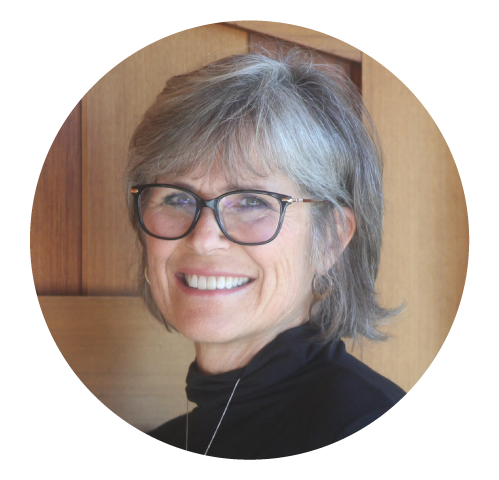It’s Poetry Friday!
and Buffy at Buffy Silverman
hosts our roundup this week! Join us!

I sat yesterday morning, sipping coffee, staying warm beneath a quilt and the heat from our firepit. I was thinking about goodbyes. Goodbye to summer. To my time in the mountains (though one more wedding will keep us here till late October!). And I thought about the landslides happening in Rancho Palos Verdes.
Who knows all the various contributing factors –drought/rain cycles, fires, erosion, disruption from construction? Maybe just Mother Nature flexing her muscles?
How do you contain a coastline?
In this case, not rising seas, but a collapsing coast?
Rancho Palos Verdes is a very upscale community. One of the wealthiest suburbs in California.
I listened to news interviews of homeowners, indignant that their power had been turned off –that they should’ve been given 30 days to prepare – which was difficult for me to absorb given the number of fires in CA that have started when power lines have been disturbed.

Landslide displacement map – a coastline on the move

….but who listens?
The homeowners had wanted more time. But the land outside their yards was not waiting. In some areas, movement has been measured in inches per week. We’re not talking small cracks. We’re talking crevasses, mounds of land opening up across and underneath properties.
Across the country, around the world, climate and environmental scientists are grappling with what to do about coastlines. Some communities have started “managed retreat” programs – the planned purchasing of private homes/properties in floodplains or coastal areas where sea rise is evident and/or inevitable. The idea is to stop trying to control nature. Instead. let nature do what nature needs to do.
Obviously, this is an entire topic far larger than I can possibly capture in a blog post. But I spent time this week mulling over the stark contrast between homeowners in an upscale CA community intent on keeping their ocean views and beach access –with people being rescued by boats on the streets of Houston after torrential rains.
We can build sea walls, dredge ocean sand, bury natural waterways… but at some point, when will we face reality? Change is inevitable. Coastlines are not meant to stay the same.
Nature will always win.
begin our adieus
there’s an owl calling –and it’s morning
–and it’s September
–and I wonder what she knows
–one last stanza for summer?
the sugar pines –finally! dripping
with slender green cones
–will you still be dangling
high above a forest floor, sugar-coated,
wind-battled, beaming
in spring?
my golden woods, path a-light
the dog lies, pretending to sleep
yearning for the signal, yearning
to traipse the needled path
to scatter squirrels, indignant
interrupted
crows cower in the trees
caw-caw! warn of shortening days
the coast not content to stretch
dares to crumple
dares to cross that line in the sand
©draft, Patricia J. Franz


 Patricia Franz writes picture books and poetry. She believes children, dogs, and sourdough have a lot to teach us about life, joy, and wonder. She has raised two boys, four dogs, and holds a master’s degree in Theology with a focus on children’s spirituality. Patricia, her husband, her Bernese Mountain dog, Bonny, and her sourdough starter split their time between the Arizona desert and the Sierra Nevada mountains.
Patricia Franz writes picture books and poetry. She believes children, dogs, and sourdough have a lot to teach us about life, joy, and wonder. She has raised two boys, four dogs, and holds a master’s degree in Theology with a focus on children’s spirituality. Patricia, her husband, her Bernese Mountain dog, Bonny, and her sourdough starter split their time between the Arizona desert and the Sierra Nevada mountains. 
Patricia, I appreciate your thoughtful insights that seemingly flow with ease into poetry posts.
This lovely line speaks to me.
“…dares to cross that line in the sand” I am inspired and intrigued!
I love that second stanza! Beautiful. When I was watching the Paralympics and they were talking about a swimmer who lost a foot to a shark, I thought about how things are changing (sharks are moving their territory) and we are not really prepared to alter our own behavior. (The pandemic has been a good illustration of that!)
Yep, nature always wins. So much beauty in your adieus, and wow–that ending.
I have missed you these last two months, Patricia! Thank you for sharing the hot map of how a coastline can be subject to landslides. The potential for change looks so clear when you see it diagrammed like that. You can also easily imagine once the highlighted piece slides, how the stress points move back and the next chunk may be ready to give way. Your poem of beginning goodbyes is both lovely and foreboding.
We’ve had our share of that here in the Rockies, fires creating mudslides, and on. Although no receding coastline, but mountain slopes are changing. I love your juxtapositioning of the good and the ugly, “yearning for the signal” and “the coast. . . dares to crumble”. One cannot change calamities that have been forecast, no matter how much it’s wished.
I like hearing your latest news, Patricia, though the changes expected obviously aren’t always good ones. I like your juxtaposition of the opposites, that dog’s “yearning for the signal “, true to life! And, the coast that “dares to crumble”. We have some of the problems here in the Rockies, mostly from fire leaving bare slopes, and rain bringing slides. Enjoy these coming fall days before the wedding. I like hearing about you being tucked into a quilt outside! (an earlier comment kept saying “submitting”. I hope this reaches you!
It is a bitter sorrow, saying goodbye to a world we’ve both loved and ruined…
Killer last line, Patricia. Well done. I’ve had a hard time missing Beaufort (coastal SC), but I have to say being up in the hills feels safer than on the coast, looking toward coming years. I do wonder at all the building that is still allowed to happen up and down the coast, Florida northward. Nature is not on anybody else’s time clock.
Thanks for this thought-provoking post about a topic I knew little about. Your poem is so poignant and powerful, filled with loving details of your interaction with nature. And yes, what a killer last line.
How beautiful…the pondering of goodbyes. Time around a fire pit is great for that. “nature always wins” is so true. Humans have become a bit ignorant of that, imho. I love those crows joining in your thoughts keeping theirs to caws. Maybe someday we will get to know more of their wisdom. Thanks for the understanding on my blogtastrophy—turned OK. I blame a busy back to school brain for looking at an old calendar!
I just heard about that community and its upheaval. Thanks for sharing your thoughts on change and goodbyes so beautifully. The owl calling, creating its own poetry with “One last stanza for summer”–I just love that so much!
Ooh, that’s a good last line! I like the way this poem asks us to practice two kinds of adieu–the cyclical one that we assume will come around again to a bon jour, and the inevitable, permanent kind that is happening even to those who have money and position to avoid it.
How often we forget that vital truth – nature will always win. We might try to control her, wrestle her, deny her – but in the end, we are but passengers on this blue sphere!
Patricia, while thinking of climate change here in the eastern part of the country, I was not aware of coastal changes in the west. Nature finds it way to overpower mankind. Thanks for the news article and your powerful poem. The questions asked our worth pondering. Climate change is real although many don’t listen to its call.
I agree on the killer last line and I can hear the crows and their haunting warning.